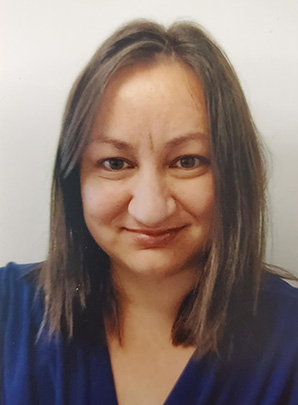Resource Navigation
Learn more about how CancerCare Resource Navigation can help you address barriers to care.
Connect Education Workshops
Listen in by telephone or online as leading experts in oncology provide up-to-date information about cancer-related issues in one-hour workshops. Podcasts are also available.
Podcasts
Exercise
- The Role of Nutrition, Exercise & Meditation in Coping with Myeloproliferative Neoplasms, Feb 7, 2025
- The Role of Nutrition, Exercise and Meditation in Coping with Myeloproliferative Neoplasms (MPNs), Apr 4, 2024
- Care for Your Bones During & After Cancer Treatment: Tips to Improve Bone Health, Nov 18, 2019
- The Role of Exercise, Meditation and Nutrition, Nov 19, 2014
- Nutrition, Physical Activity and You: A Guide for People Living With Cancer, Nov 15, 2011
- The Importance of Nutrition and Physical Activity, May 19, 2009
Publications
Read or order our free Connect booklets and fact sheets offering easy-to-read information about the latest cancer treatments, managing side effects and coping with cancer.
For Any Cancer Diagnosis
Financial Assistance
Limited assistance from CancerCare is available to help with cancer-related costs.
Ask CancerCare
Every month, featured experts answer your questions about coping with cancer including specific answers to questions asked by caregivers.
For Any Cancer Diagnosis
- Q.
How can I find an exercise program that is adjusted for physical limitations I have due to having had cancer? I can't walk like I used to, because I have nerve damage in one leg and I tire easily. I thought yoga or Tai Chi, but I can't do the normal sets. Any ideas what kind of exercise I can do or where I can find modified plans?
A.Your question identifies one of the most important aspects of cancer survivorship – continued self-care. Exercise improves post-treatment fitness and strengthens your ability, in both mind and body, to cope with the after-effects of cancer.
The first step in starting any exercise program is to consult a doctor, either your oncologist or general practitioner. Ask him/her for a referral to an occupational or physical therapist, who can help you customize an exercise routine based on your age, present fitness level, and any limitations caused by cancer or its treatment. This can help increase your flexibility and bone and muscle strength, which are crucial to improving balance and preventing falls. Some techniques can even be performed sitting or standing. For more information, see our booklet, Caring for Your Bones When You Have Cancer.
Health professionals can also help you find exercise programs in your community, such as yoga, Tai Chi, qigong, and other gentle movement classes that are tailored to cancer survivors. Such classes may also be found at your local YMCA, senior center, or Cancer Support Community. Mind-body techniques (including deep breathing and relaxation exercises) will improve your focus and energy level. Learn more by reading our fact sheet, “Relaxation Techniques and Mind/Body Practices.”
You may also want to see a neurologist to treat the nerve damage, or neuropathy, that is limiting your movement. A neurologist may prescribe medications, acupuncture, or relaxation exercises to relieve your pain and discomfort.
Another way to improve your ability to exercise is to consult a nutritionist or registered dietitian: finding a diet tailored to your specific needs can help increase your energy and rebuild your muscles and bones. The American Cancer Society has comprehensive nutrition information for before, during, and after cancer treatment.
Even if you are fatigued and tire easily, start slow. Any exercise is better than none. Consult the American Society of Clinical Oncology for information on how to practice this. Instead of walking for an hour, walk for 5-10 minutes several times a day. Give yourself credit for any exercise you do, and reward yourself when you are able to do more. Remember to celebrate each small success.
Specialized Programs
CancerCare offers specialized programs to address specific populations and concerns.
Coping Circle Workshops
Virtual educational and supportive workshops led by oncology social workers and qualified co-facilitators. These workshops cover numerous topics and are offered in English and Spanish.
Additional Resources
Organizations
Strength for Life

 Answered by
Answered by